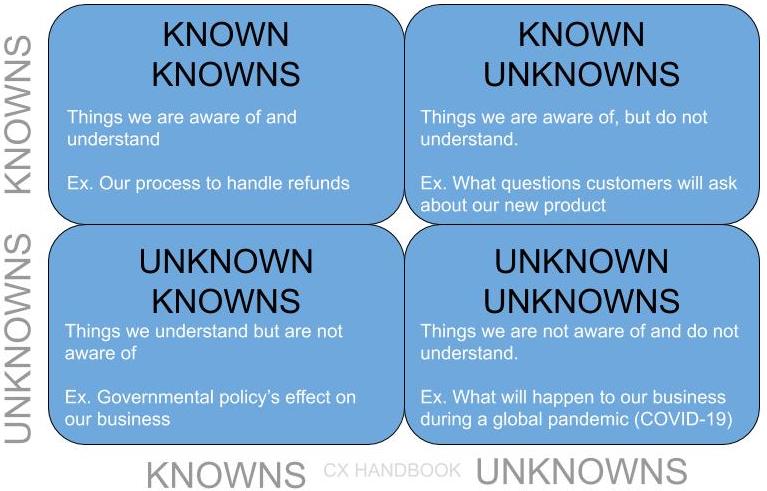Summary
In this post you will learn a method for how Customer Support Reps work, and a framework called Known-Knowns Framework which will help create workflows for your organization.
How a Support Rep Works
If you look at a simplified process that a support rep must undertake to answer a given question and solve a problem, they are basically performing the following steps:
- Issue Recognition: What is the customer actually asking, what scenario is at play, is it known to us or unknown? They basically run an IFTTT (If This Then That) scenario for every question.
- Response: How does a rep respond to the customer? This is the total package of the response: it includes the technical answer, steps taken to solve the issue, and the empathy that they add to the interaction.
These steps can be extremely dynamic, especially if it's a phone call. The best reps can instantly recognize the problem and knows the exact steps to take which will completely solve the customer issue in a way that makes the customer very happy.
Creating a Workflow
What comes first: The process or the response?
If you're like most companies, you'll start with a customer's question and then develop a response to solve their problem. This goes for any product, even if it's been in the market for a long time. The dynamic aspects of business will dictate that you'll always get new (Unknown) and repeat (Known) questions.
I am making the proposal to use a framework I'll call the Known-Knowns Framework. As a team, your goal should be to maximize the percentage of Known-Knowns to maximize your team's effectiveness.
Known-Knowns Framework:

Using the framework
Since the key is to move towards Known-Knows you can easily measure your progress. You do this by identifying what percentage of your work falls into each category, documenting the root-causes for the new questions you're receiving, and making sure the knowledge is shared. When responding to customers, here's how to assess your progress against the framework:
- Known-Known: We have canned response (macros) that does a great job at addressing the customer's issue.
- Known-Unknown: A rep formulates a response on the fly because it's similar enough to another scenario that we've seen in the past.
- Unknown-Knowns: You need help to create a response to this type of question, hopefully someone on the team has this information. You'll often need cross-functional help to answer this question.
- Unknown-Unknowns: This type of question requires an escalation because it is a completely bespoke situation and could require all-hand's on deck to solve.
At any point that you're dealing with any Unknown variable, you must take a different action and other posts will cover how to handle Unknowns.